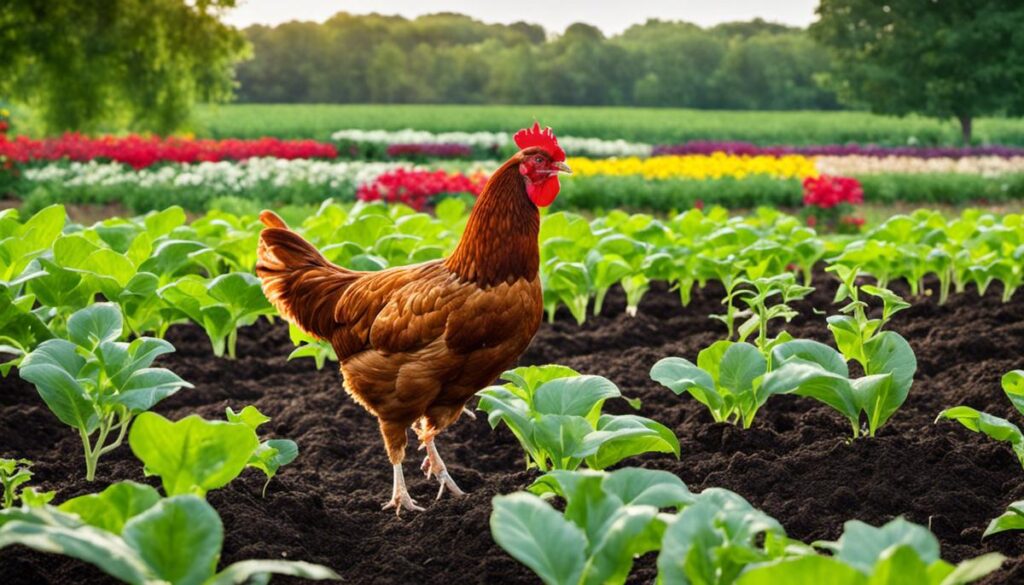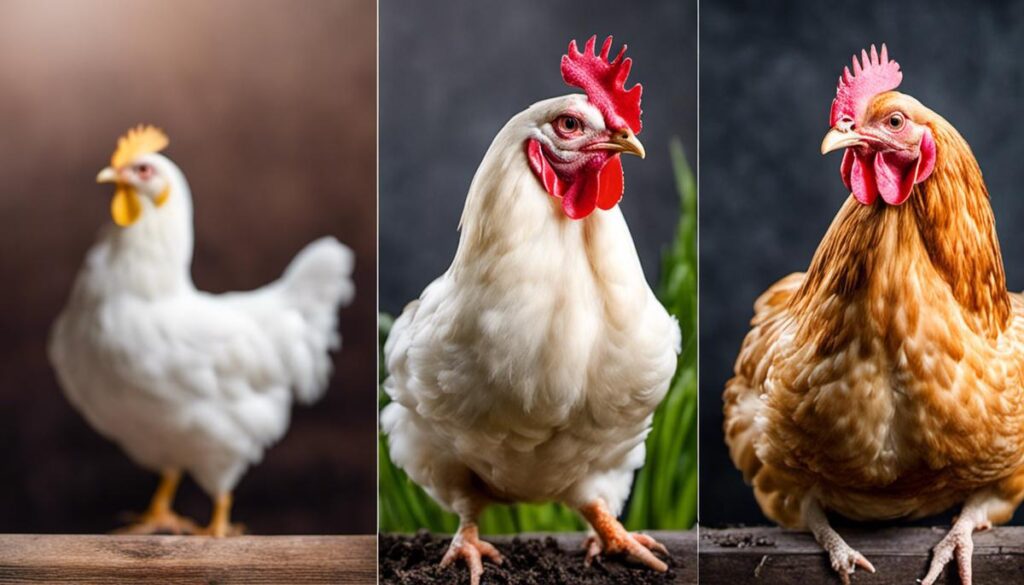Ever pondered over your chicken coop’s hidden treasure?
Chicken manure is more than just waste to be disposed of, chicken manure is also a natural fertilizer that can significantly enhance the fertility and productivity of your garden or farm. Chicken manure contains almost all 13 essential plant nutrients needed by plants with approximately 65.5% of nitrogen, 83.5% of potassium, and 68.5% of phosphorus., this can supercharge the growth and health of a variety of plants and vegetables. Join us on a journey into the fascinating world of chicken manure, where we’ll unlock the secrets to supercharging your plants’ growth and vitality.
In this beginner-friendly guide, we’ll unravel the mysteries behind using chicken manure as a powerful fertilizer, turning your gardening venture into a tale of flourishing greens and vibrant blooms. understanding essential composting techniques to sterilize this natural fertilizer, and acquiring knowledge on its proper application for optimal growth benefits, Embark on a fascinating journey as this guide unveils the practical wonders of harnessing chicken manure as a fertilizer for your plants. Chicken manure is one of the best organic fertilizers available and is an extremely valuable resource.
We will receive a commission if you purchase through our affiliate link at no extra cost to you. Please read our disclosure policy for more information.
Understanding Chicken Manure
It’s Time to Talk Chicken Manure: An Unexpected Superstar in the World of Fertilizers
As unconventional as it may sound, chicken manure occupies a considerable throne in the realm of gardening and planting. This resource, frequently overlooked, can spell the difference between plant-life prosperity and dreaded decay. Able to deliver fantastic, nutrient-rich yield to soil, chicken manure is truly an unsung hero in the world of fertilizers. Let’s dive deeper into the benefits of choosing chicken manure as a fertilizer of choice.
First off, it is worth noting that chicken manure is incredibly high in nitrogen. This essential nutrient plays a critical role in photosynthesis, aiding in leaf development, rapid growth, and the overall vitality of the plant. Not many natural fertilizers can boast such lofty nitrogen levels, making chicken manure a supreme standout.
In addition to nitrogen, chicken manure is rich in calcium. This nutrient directly impacts cell growth in plants, fortifying cell walls and ensuring overall sturdiness. From a grower’s perspective, adequate calcium in soil can also help mitigate the distress inflicted by soil borne diseases. Now that’s a power pack in one humble package!
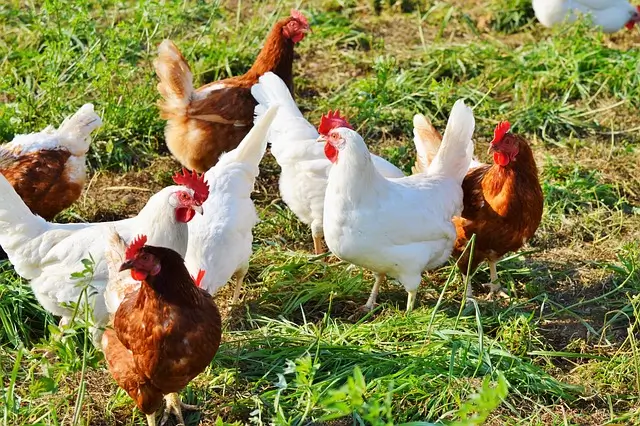
Plant Power
Chicken manure also house generous quantities of phosphorous, another key player in plant health. This mineral stimulates root growth, aids in flowering and fruit set, and can greatly aid in plants’ energy transfer. In essence, phosphorous is like a shot of caffeine for plants, ensuring they grow and flower with gusto.
One of the most significant benefits of chicken manure is its organic matter content. Unlike processing-dependent, synthetic fertilizers, chicken manure adds organic matter to the soil. Organic matter’s importance cannot be overstated, as it improves soil structure and moisture retention, promotes microbial life, enhances root penetration, and even prevents soil erosion.
Cost Effective
And who can ignore the economical side of things? Chicken manure is highly cost-effective. For hobbyist gardeners or those on smaller farms, subscribing to synthetic, commercial fertilizers can weigh on the wallet. Choosing manure as a natural alternative minimizes this expenditure, killing two birds with one stone (don’t worry, no chickens were harmed in the making of this pun).
As with any fertilizer, correct usage of chicken manure is key. It must be composted and aged properly before applying to plants to prevent burning or damaging them. The right ‘manure etiquette’ can usher in an era of lush, thriving vegetation, driven by the powerhouse of nutrients that chicken manure provides.
For any gardening, knowing about the fertilizers at your disposal is crucial. Chicken manure may not have been the conventional choice of the past, but its benefits are driving growers everywhere to think otherwise. Nutrition-packed, cost-effective, and environmentally friendly, the spotlight is truly on chicken manure in the world of fertilizers. Whether one is tending a small hobby garden or overseeing a larger plot, the value of this poultry product in soil enrichment is undeniable. So, heed the call of the clucking, because chicken manure might just be the magical ingredient your garden needs. To learn more about chicken manure Click Here.
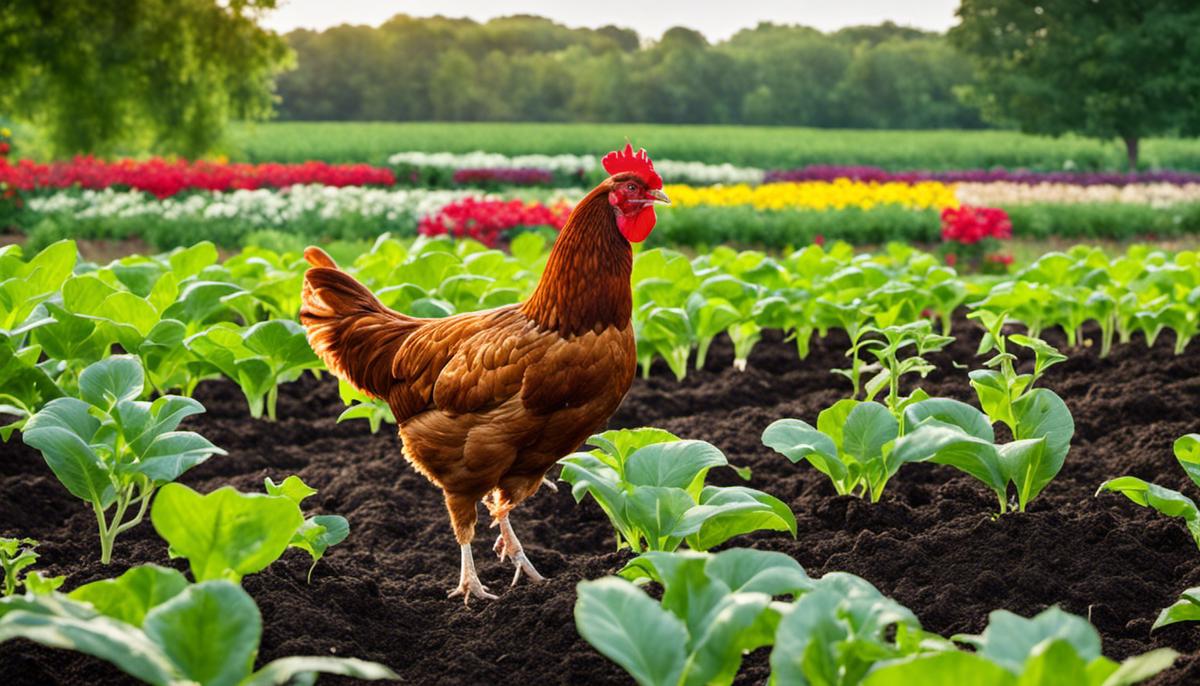
Proper Composting Techniques
Transforming chicken manure into a viable composting material is not a difficult process, but it requires some specific techniques to ensure safety and effectiveness. If you’re interested in repurposing this incredible resource, you’ve come to the right spot. Let’s dive into the steps!
1. Collecting the Manure:
Start off by gathering chicken droppings, preferably mixed with a good amount of carbon source like straw or wood shavings from the coop. If you’re not able to do this, don’t fret; it’s still a go! You can add dry leaves or shredded newspaper to your gathered manure instead.
2. Layering:
Begin the composting process through the technique of layering. Start with a layer of dry, carbon-rich material on the bottom of your compost pile or bin. Then add a layer of chicken manure on top, followed by another layer of dry material. Repeat this process until your pile is about 3 feet high.
3. Moisture Balance:
The moisture content in your compost pile is vital. It must be like a wrung-out sponge – damp, but not soaking wet. If it’s too dry, add more manure or sprinkle some water. If it’s too wet, add more carbon materials.
4. Monitoring Temperature:
A compost thermometer is helpful to monitor the internal temperature of your pile. It needs to reach between 130°F and 150°F, which aids in killing weed seeds and harmful bacteria, while preserving beneficial microbes.
5. Turning the Pile:
To activate the composting process and introduce oxygen, turn the compost pile every four or five days using a pitchfork or shovel, always ensuring outside matter is turned inside.
6. Curing Stage:
Once the compost pile has decomposed and cooled down, it enters the curing stage. Here, it should be left undisturbed for a minimum of two months to allow the compost to stabilize and for any remaining pathogens to be annihilated.
Results
And voila! After about 3-4 months, your composted chicken manure is ready to be used. It should be a crumbly texture and have an earthy smell – clear indicators of success.
To make you composting easier you can use a tumbling composter like the one pictured below.
Remember, using composted chicken manure not only benefits your garden’s growth but also embodies a circular and sustainable approach to gardening. As a bonus, it keeps this high-value waste out of the landfill, providing a far-reaching environmental impact.
Knowing how to compost chicken manure safely adds a valuable skill to your gardening repertoire, helping your plants to thrive while protecting the environment. And trust me, your flourishing garden will thank you for it. An absolute win-win situation in my book!
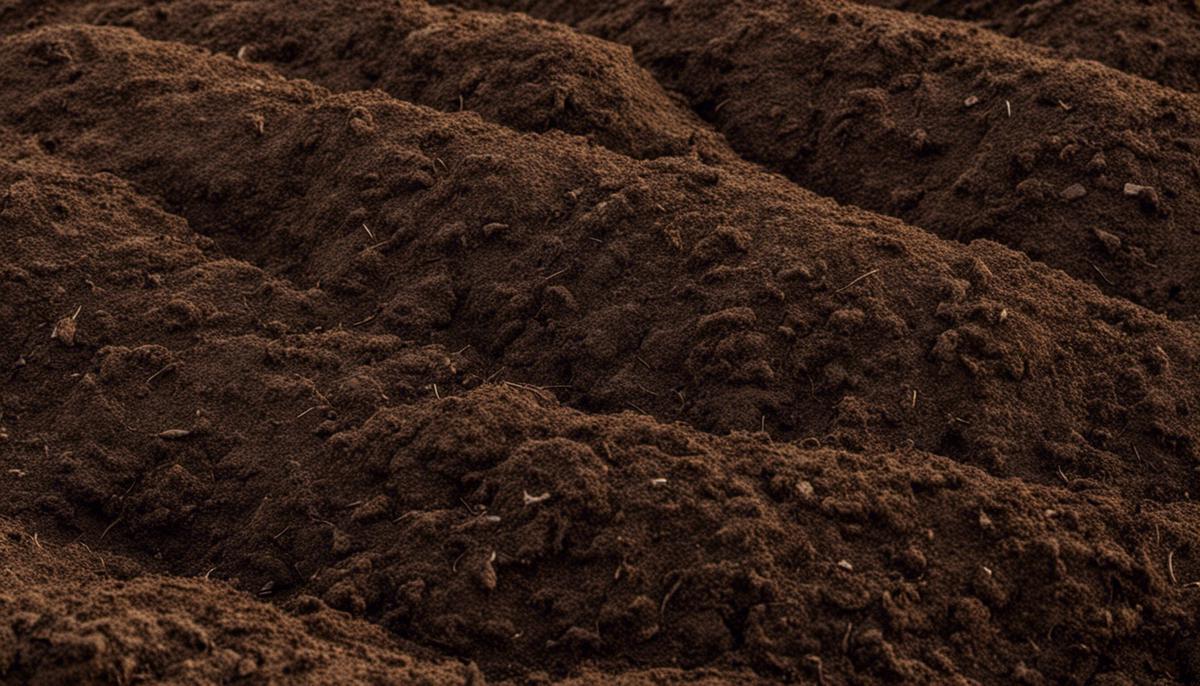
Application Methods for Chicken Manure
From the world of home composting and organic gardening, let’s look a little deeper into the quantity and timing of chicken manure application to plants. Experts emphasize that applying chicken manure adequately holds the key to capitalizing on its vast benefits, and here’s how it’s done!
First off, it’s vital to gauge the correct amount. An ideal load for most garden plants would be about a 2-inch layer of composted chicken manure. While it’s an enriching source of nutrients, bear in mind that a little goes a long way, and too much could lead to nitrogen burn harming the plant life. Likewise, certain plants such as berries or vegetables might prefer a lighter touch with only an inch necessary.
Timing
Next, timing is crucial! Spring, often marked as a time of growth and renewal, is ideal for applying chicken manure to the soil. Doing this refuels the soil after winter’s depletion and sufficiently preps it for the upcoming planting season. Application could also be considered during fall for specific winter crops or to simply enhance soil fertility over the dormant period.
Also worth noting, perennials might appreciate a mid-summer boost. Thus, for plants like tomatoes or peppers that bear throughout summer, a layer of chicken manure halfway through their growing season can be a game-changer, injecting essential boosters akin to a mid-race energizer for a sprinter.
Further, let’s touch base on laying this gold-dust for soil. The mantra to follow here is “spread, don’t pile.” This ensures better nutrient dispersion and prevents ‘hotspots’ which could harm plant roots. So, grab that rake, and gently spread the manure in concentric circles around your plants.
Finally, after application, remember to lightly water the area. This simple act speeds up the release of nutrients into to the soil, creating an immediate buffet for those hungry root systems.
Embrace this magic potion from nature’s very own lap and see a visible difference in plant growth, color, and yield. Think lush, vibrant green leaves, sturdier stems, and bountiful crops… all thanks to the humble chicken manure.
Until next time, happy gardening, folks! Remember, like all great things, the secret lies in the balance and timing.

Conclusion
With the knowledge and tools provided in this informative guide, and the understanding of how utilizing chicken manure as a natural fertilizer is now within your grasp. By now you should have a good understanding of chicken manure and its nutrient content, mastering the composting techniques, and learning the optimal application methods, you hold the key to unlocking the immense potential of this humble byproduct. Make the most of what your chickens produce and transform your garden or farm into a nutrient-rich haven for your plants. Don’t see chicken manure as waste; see it as the nutrient-packed, plant-boosting powerhouse that it truly is. With the proper usage of chicken manure, a greener, more bountiful yield is well within your reach.
Learn how to maintain a clean chicken coop, review my article on: Maintaining Chicken Health by Cleaning Your Chicken Coop Regularly.
To learn more about composting and raising chickens, this book has a lot of great information.
Every wonder how many chickens you can keep in your coop? Check out the article below.
Optimizing Chicken Coop Space: How Many Chickens to Keep?

